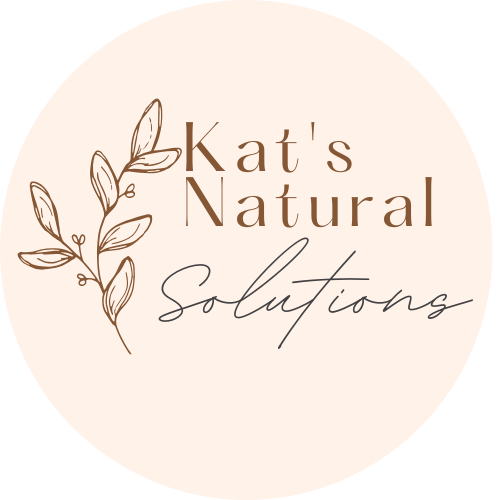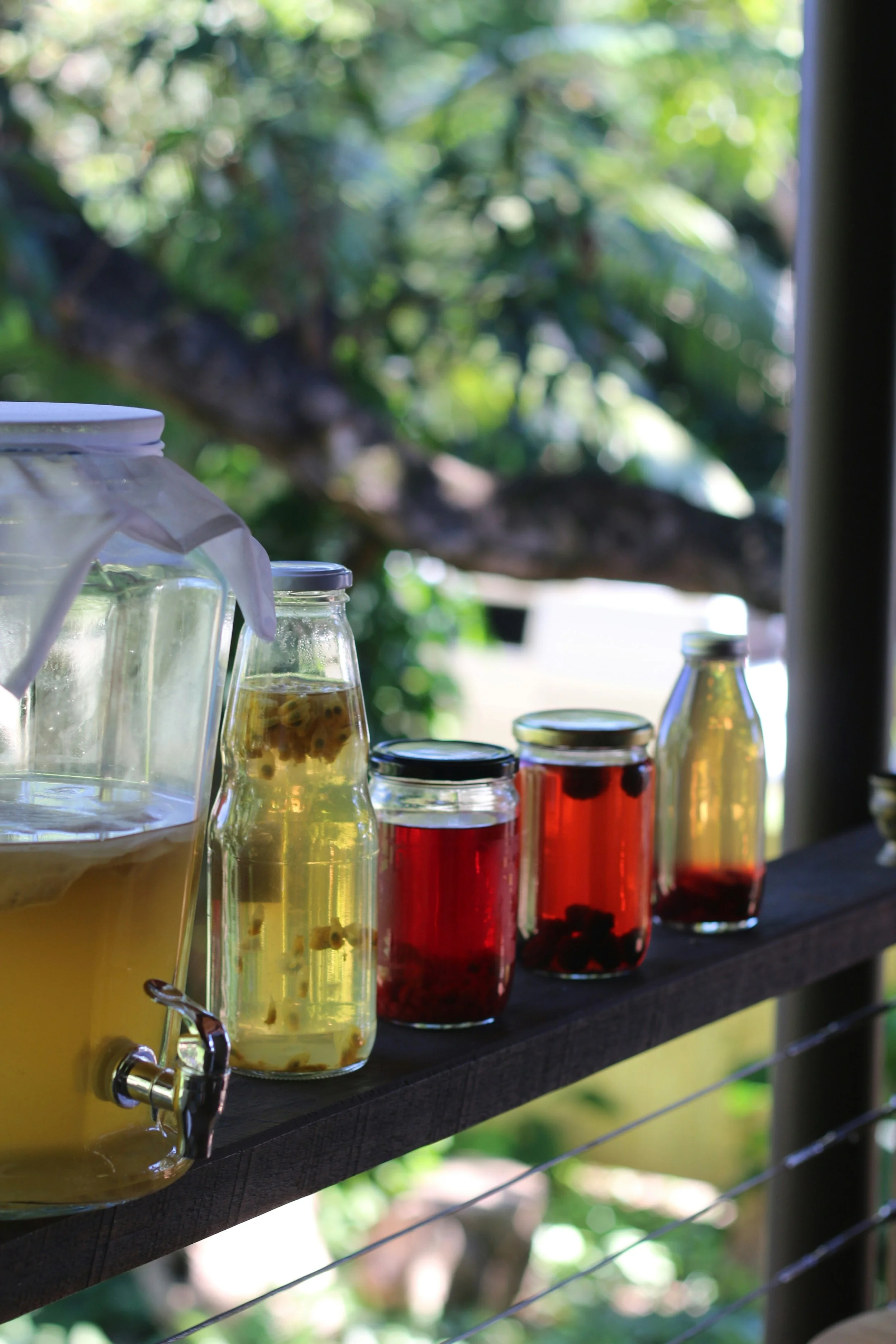Is Your Liver Sluggish? How a Stagnant Liver Can Trigger Digestive Problems, Thyroid Imbalances, Inflammation, and Histamine Reactions
A sluggish liver doesn’t just affect detox — it can impact your digestion, hormones, thyroid function, inflammation levels, and even histamine responses. Learn the signs of poor liver function and natural ways to support this vital organ.
Your Liver: The Silent Powerhouse
The liver does much more than filter toxins. It plays a critical role in:
Breaking down hormones like estrogen and cortisol
Regulating inflammation
Converting thyroid hormones into their active form
Metabolising histamine
Digesting fats via bile production
When the liver becomes sluggish or overburdened, these processes slow down — and your body may start to signal that something is out of balance.
Signs Your Liver Might Be Sluggish
Some of the most common symptoms of poor liver function include:
Bloating, especially after eating fatty foods
Constipation or pale, sticky stools
Brain fog or fatigue
Hormonal imbalances like PMS, fibroids, or irregular cycles
Skin issues like acne, rashes, or itchiness
Joint pain or morning stiffness
Histamine intolerance (headaches, hives, sinus issues)
Increased sensitivity to smells, alcohol, or medications
These symptoms are often treated in isolation, but many have a common root — a liver that needs support.
1. Liver and Digestion: What’s the Connection?
Your liver produces bile, a fluid essential for breaking down fats and absorbing fat-soluble vitamins (A, D, E, and K). Bile also helps remove toxins and excess hormones from the body.
When liver function is compromised:
Bile production may drop
Digestion of fats becomes difficult
The microbiome can become imbalanced
Toxins and waste products start to recirculate
This can lead to bloating, gas, constipation, and nutrient deficiencies.
2. Liver and the Thyroid: A Two-Way Street
Your liver is responsible for converting inactive thyroid hormone (T4) into the active form (T3). If your liver is sluggish, this conversion slows down — meaning even if your thyroid gland is healthy, your metabolism and energy may still suffer.
Additionally, a congested liver often struggles to clear excess estrogen, which can further suppress thyroid function and cause symptoms like fatigue, weight gain, and menstrual irregularities.
3. Liver and Inflammation (Including Arthritis)
The liver helps regulate inflammation through its role in detoxifying metabolic waste, environmental chemicals, and inflammatory byproducts.
When liver detox slows down, these substances build up and trigger the immune system — which can lead to:
Joint inflammation or stiffness
Muscle aches
Flare-ups in conditions like rheumatoid arthritis
This can be especially noticeable in the morning or after periods of inactivity.
4. Liver and Histamine Sensitivity
Histamine — the compound behind allergies, hives, sinus issues, and flushing — is broken down by enzymes that depend on proper liver function.
If the liver is sluggish:
Histamine is not efficiently cleared
You may experience symptoms like itchy skin, headaches, racing heart, bloating, gas or food sensitivities
Estrogen may also build up (which slows histamine breakdown even more)
This creates a vicious cycle of heightened sensitivity and inflammation.
5. What Causes Liver Sluggishness?
Your liver works hard every day — but certain factors can overload or impair its function:
Poor bile flow
Low stomach acid
Chronic stress
Environmental toxins (pesticides, plastics, pollution)
Medication overuse
Alcohol consumption
Processed foods, refined sugar, and unhealthy fats
Constipation or slow bowel transit
6. How to Support Your Liver Naturally
You don’t need extreme detoxes or juice fasts to support your liver — gentle, consistent habits are much more effective. Try adding these into your daily routine:
🌿 Eat Bitter Foods
Dandelion greens, rocket, mustard greens, and lemon water stimulate bile and liver activity.
🧄 Include Liver-Supportive Foods
Such as garlic, beets, carrots, broccoli sprouts, artichokes, turmeric, and leafy greens.
💧 Stay Well-Hydrated
Water helps flush toxins and keeps bile thin and flowing.
🚶♀️ Move Daily
Gentle movement supports circulation, lymphatic drainage, and liver function.
🍽️ Support Gut Health
A healthy gut reduces the toxic burden on your liver. Include prebiotic fibre, fermented foods, and avoid chronic constipation.
🧘♀️ Manage Stress
Ongoing stress alters blood flow to the liver and increases toxic byproducts like cortisol. Even a few minutes of deep breathing or mindfulness can help.
🫙 Avoid Excess Chemicals
Choose natural personal care and cleaning products where possible. Avoid plastics and processed foods.
Final Thoughts
Your liver is a multitasking powerhouse, but it can only do so much when overwhelmed. If you’re experiencing digestive issues, thyroid symptoms, inflammation, or histamine reactions, it’s worth considering whether your liver needs a little more love.
Gentle, consistent liver support can improve not just detox — but energy, hormone balance, and resilience from the inside out.
References
1. Liver and Bile Flow
Chiang JY. Bile acid metabolism and signaling in liver disease and therapy. Liver Research. 2017;1(1):3–9.
https://doi.org/10.1016/j.livres.2017.03.001Ridlon JM, et al. Microbial bile salt hydrolases: from gut microbiome to host metabolic regulation. Front Microbiol. 2016;7:1129.
https://doi.org/10.3389/fmicb.2016.01129
2. Liver and Thyroid Function
Bianco AC, et al. Thyroid hormone signaling and metabolism: implications for liver health. Nat Rev Endocrinol. 2019;15(4):231–244.
https://doi.org/10.1038/s41574-019-0166-8Chawla M, et al. Liver function tests in patients with hypothyroidism. Int J Health Sci (Qassim). 2018;12(5):50–54.
https://www.ncbi.nlm.nih.gov/pmc/articles/PMC6139750/
3. Liver and Estrogen / Hormonal Imbalance
Staudinger JL, et al. Coordinate regulation of hormone and xenobiotic metabolism in the liver. Toxicology. 2003;181–182:249–253.
https://doi.org/10.1016/s0300-483x(02)00458-0Adlercreutz H. Phytoestrogens and breast cancer. J Steroid Biochem Mol Biol. 2002;83(1–5):113–118.
https://doi.org/10.1016/s0960-0760(02)00274-5
4. Liver, Inflammation, and Joint Health
Albillos A, et al. Cirrhosis-associated immune dysfunction: distinctive features and clinical relevance. J Hepatol. 2014;61(6):1385–1396.
https://doi.org/10.1016/j.jhep.2014.08.010Ranganathan P, et al. Hepatic function and inflammation in rheumatoid arthritis. Rheum Dis Clin North Am. 2021;47(3):359–369.
https://doi.org/10.1016/j.rdc.2021.03.006
5. Liver and Histamine Metabolism
Maintz L, Novak N. Histamine and histamine intolerance. Am J Clin Nutr. 2007;85(5):1185–1196.
https://doi.org/10.1093/ajcn/85.5.1185Schwelberger HG. Histamine metabolism. Front Biosci. 2006;11:1992–2001.
https://doi.org/10.2741/1941
6. Liver Support Through Diet and Lifestyle
Velayudham A, et al. Natural products and liver health: overview and evidence. World J Gastroenterol. 2009;15(30):3760–3770.
https://doi.org/10.3748/wjg.15.3760Zhao J, et al. Dandelion extracts protect the liver against acetaminophen-induced injury by regulating oxidative stress and inflammation. J Ethnopharmacol. 2021;268:113597.
https://doi.org/10.1016/j.jep.2020.113597


